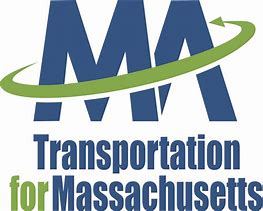MA Environmental, Transportation, and Health Groups
Among More Than 200 Organizations to Express Support
for An Ambitious and Equitable TCI Program
in Letter to Northeast Governors

BOSTON – NOVEMBER 17, 2020 – A dozen Massachusetts environmental, health, and transportation groups are among 200 organizations in the Northeast and Mid-Atlantic that have called on the region’s governors, including Gov. Charlie Baker, to launch an ambitious and equitable Transportation and Climate Initiative (TCI) program. In a letter to the region’s governors, the organizations state their support for a TCI program that includes “strong safeguards and guarantees for overburdened and underserved communities.”
Transportation accounts for more than 40 percent of Massachusetts’s greenhouse gas emissions and is the largest source of air pollution of any sector of the state’s economy. TCI is a bipartisan, regional collaboration of 12 Northeast and Mid-Atlantic states and the District of Columbia that seeks to reduce carbon emissions from the transportation sector while improving transportation and developing the clean-energy economy. The participating states are Connecticut, Delaware, Maine, Maryland, Massachusetts, New Hampshire, New Jersey, New York, Pennsylvania, Rhode Island, Vermont, and Virginia. A memorandum of understanding committing to TCI is expected to be signed by a subset of participating governors by year’s end.
“The Trump administration’s recent exit from the Paris climate agreement underscores the need for leadership from the states on climate. We applaud Governor Baker for taking the lead on this bipartisan, regional effort to address climate change and improve the quality of life of Massachusetts residents,” said Chris Dempsey, Director, Transportation for Massachusetts.
“We’ve seen the clear connection between air quality and poor health outcomes with COVID-19. Every day clinicians treat patients suffering from respiratory and circulatory ailments linked to toxic air exposure. Mobile fossil fuel combustion disproportionately affects low-income communities and communities of color – the same communities experiencing the worst health impacts of climate change. TCI is one important tool to decrease sector carbon emissions and improve health while generating much-needed revenue for investments in clean transportation alternatives and a modern transit system,” said Eugenia Gibbons, Boston Director, Climate Policy, Health Care Without Harm.
“The transportation climate initiative is a strong step in the right direction toward transitioning the region to cleaner and affordable transportation, reducing greenhouse gas emissions, and beginning to address the disparate impact of transportation pollution in some of the region’s most vulnerable communities, which the Union of Concerned Scientists has documented. UCS, along with 200 other groups that have signed this letter, calls on states across the region to move forward with an ambitious and equitable program, and other strong complementary policies. The time to act is now,” said Kenneth Kimmell, President, Union of Concerned Scientists.
The letter to the governors urges them to prioritize equity and dedicate significant program spending to address the needs of Black and Brown communities that face disproportionate exposure to, and health harms from, transportation vehicle pollution.
“The TCI program will help Massachusetts slash tailpipe pollution and provide a new source of funding for public transit and clean transportation investments. The program’s success should be measured by how well it delivers those benefits–cleaner air and better transportation options–to the communities that need them most,” said Jordan Stutt, Carbon Programs Director at the Acadia Center.
“Transportation is Massachusetts’s largest source of climate-changing carbon emissions. We urgently need solutions that give people better options for getting around while also reducing that pollution. The Transportation & Climate Initiative builds on successful programs in the energy sector that have helped bring down emissions and costs for consumers over the last decade. We want Massachusetts to continue to lead on TCI,” said Elizabeth Turnbull Henry, President, Environmental League of Massachusetts.
The Massachusetts-based groups that signed the letter to the governors include:
350 Mass, A Better City, Acadia Center, Alliance for Business Leadership, Beverly Human Rights Committee, Ceres, Clean Energy Advisory Committee of Beverly, Climate Action Now of Western Massachusetts, Climate XChange, E2, Environment Massachusetts, Environmental League of Massachusetts, Gateway Cities Innovation Institute at MassINC, Green Energy Consumers Alliance, Health Care Without Harm, Institute for Transportation & Development Policy, League of Women Voters of Massachusetts, Longwood Energy Group, Massachusetts Interfaith Power and Light, MassBike, MASSPIRG, Metropolitan Area Planning Council, Mothers Out Front Massachusetts, NECEC, Transportation for Massachusetts, Union of Concerned Scientists, WalkBoston
The letter and full list of 200 signatories is available here: link

About Transportation for Massachusetts
Transportation for Massachusetts (T4MA) is a diverse coalition of more than 100 member and partner organizations with a stake in improving transportation across the Commonwealth. Our coalition advocates at the state, federal, and local levels for transportation policies that are innovative, sustainable, and environmentally friendly. We want a transportation system that strengthens our economy and our communities, while also being safer, healthier, more affordable and reliable.
